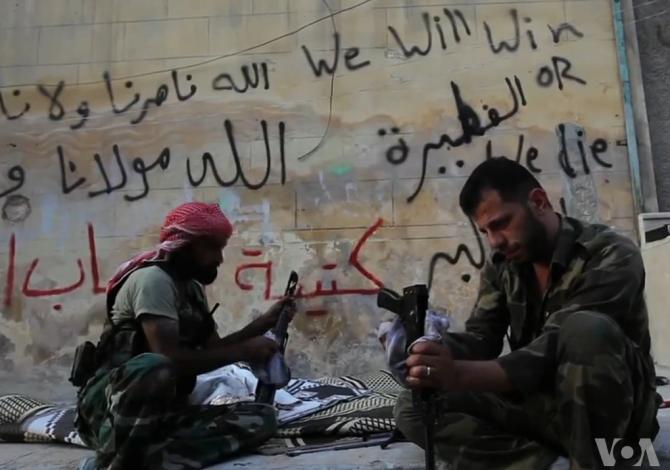The temperature had reached about 115 degrees that day in August 2007. I was a relatively young American soldier sitting in the backyard of a Sunni tribal leader, also known as a sheik, in a western Iraqi town called Ramadi. Since 2003 this sheik and his followers had been hard at work trying to kill American servicemen. Aided by foreign elements from al-Qaeda, they proved formidable at their task. But something had changed by the time I arrived in that backyard. The Sunnis had grown tired of al-Qaeda’s strong-arm tactics and attempts to institute strict sharia law.
Changing tactic, the sheik and many like him stopped firing at the Americans and started asking for assistance. They wanted the extremists out of their neighborhoods; they wanted the chance to live in a modern society with modern amenities. In fact, while I sat attentively, sipping strong Iraqi tea, the sheik spoke about the need to repair generators and power lines. It’s amazing how such mundane issues come to the forefront in the midst of an increasingly violent war. Unfortunately, we botched Iraq. Do we have to botch Syria?
I do my best to draw objective lessons from our Middle East ventures in the past decade. Sending American troops to Iraq only enflamed sectarian tensions and opened the door for Islamic extremists to usurp the insurgency. So President Obama’s reluctance to follow suite in Syria is well placed. However, by 2007 it became clear that Iraqis resented the influence that foreign jihadis tried to exert on the local populations. Today, Syrian rebels who seek to overthrow a sadistic Bashar al-Assad find themselves in a similar situation. Extremists are hijacking their insurgency. More moderate forces want American support, and we should give it to them.
Support comes in many forms and should be decided upon after carefully assessing repercussions. A limited air strike on Assad’s known chemical weapons sites will not tip the scales in either direction. Yes, President Obama could say that he stood by his red line, but the potential for collateral damage outweighs any token victory. Most targets are strategically placed in or near populated areas, so one can see the potential for undesirable outcomes. Our goal is to help moderate rebel factions, not give Islamic extremists highly effective recruitment material.
If President Obama and Secretary Kerry desire a face-saving symbolic gesture, then the Russian proposal seems more appropriate than limited, ineffectual air strikes. Allow Assad to join the Chemical Weapons Convention. Allow experts to discuss the logistics of dismantling chemical weapons stockpiles in a country at war. And as months turn to years, the US government should be vigilant in providing financial and material support for moderate rebel groups. This kind of support can be accomplished without American troop deployments and without airstrikes.
Addressing the isolationist camp here in the United States, I understand its distaste for foreign intervention. If there are any tangible benefits to the Iraq War they are hard to discern. Moreover, why should America stick its nose in another nation’s business? Are we the global babysitter?
At this point, it’s hard to say that the conflict is solely a Syrian affair. With refugees pouring across borders by the millions and other players like Russia, Iran, Turkey and the Gulf monarchies of Saudi Arabia and Qatar exerting their influence, this conflict has shifted from national to international. Potential future allies will remember if America stood on the sidelines. As time passes, they may not want our assistance even if we’re willing to offer it.
Syria is disintegrating and the region risks falling into a sinkhole. It’s not too late to vet rebel groups and provide them with the support they need to overthrow Assad. Once he’s gone, I believe Russia and the US will find each other to be greater allies than both assumed. Neither nation wants Syria to become a hotbed for Islamic extremists. Despite sectarian tensions, all interested governments would ultimately prefer regional stability to ideologically driven chaos.
Air strikes won’t achieve a positive end. An American invasion would accomplish nothing. However, unwavering American support, financial and material, would finally tip the scales. We need to pick a racehorse and go with it. After all, Russia and Iran already have.

